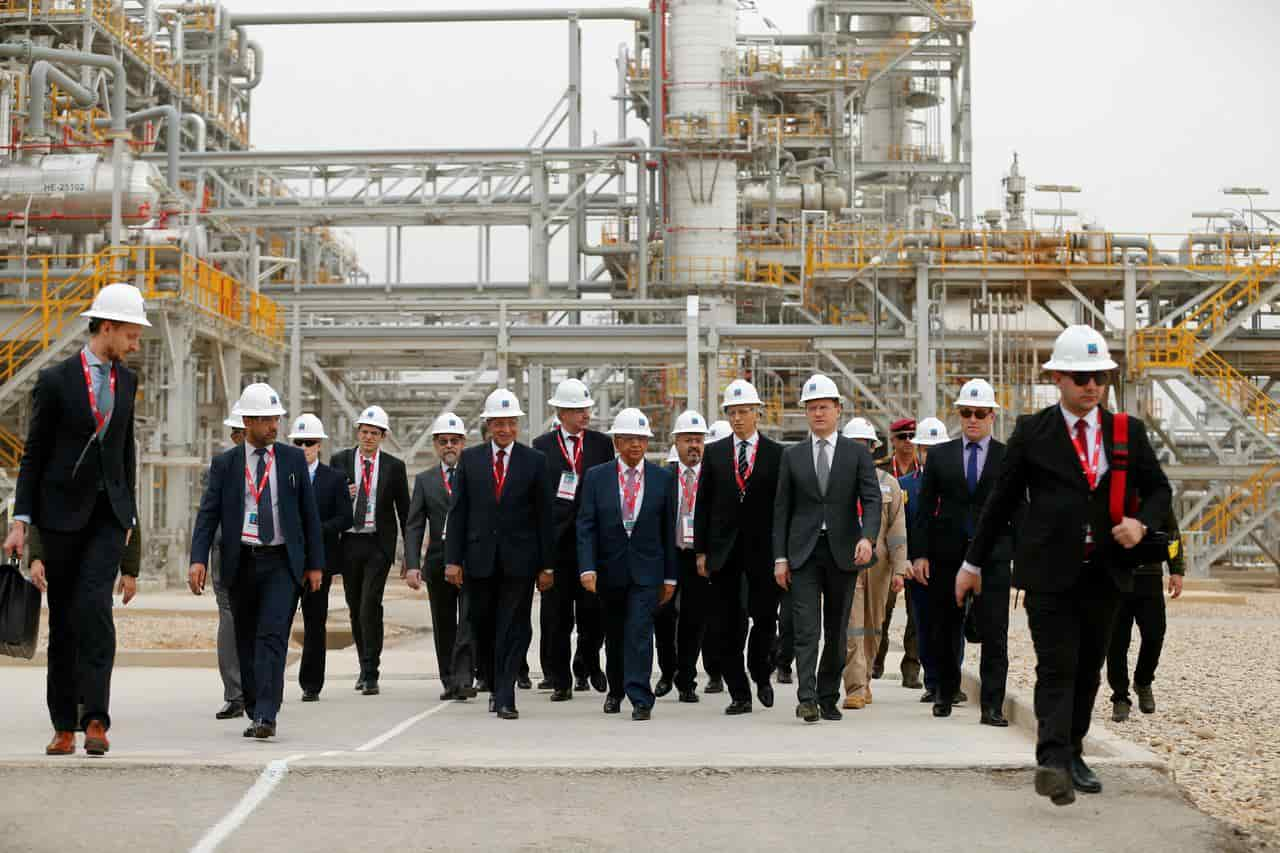Seyed Fo’ad Alavi, researcher of Russia and Central Asia, Bureau of Diplomatic/Economic Studies, Imam Sadeq (PBUH) University
But after the defeat of the ISIS terrorist group-let, and the return of a relative peace to the country, many companies expressed their readiness to cooperate and invest in the country and have already entered into the market. Effort has been made to review overly the Russian investor companies, Iraq’s energy market situation, and present problems of the market.
Iraq’s energy sector situation
Iraq is one of the most important players of the world oil market. The proven reserve of oil in the country is 153 billion barrels (9% of the whole oil reserves of the world). Iraq is the fifth oil rich country of the world (followed by Venezuela, Saudi Arabia, Canada and Iran). For example, oil production reached 4.465 million barrels per day in 2016, i.e. 10.8% more than its production in 2015. Iraq has a considerable gas reserves too. (Gas reserves explored in Iraq is amounted to 3.7 trillion cubic meters).
Oil industry in Iraq improved after 2010, when the government signed agreements with a number of trans-national companies for exploitation of Iraqi oil fields. Years later, there was a remarkable increase in oil production and export. According to director of Iraqi state-owned oil marketing company in September 2018, Iraqi oil export reached nearly to 3.595 million barrels per day.
Iraq & Russia Cooperation in Fuel & Energy Sectors
Iraqi oil and gas sectors have been attractive for economic security of Russian Federation, because there are three Russian oil companies active in Iraq; Lukoil, Gazprom Neft and Bashneft. Russneft has also shows very much interest to Iraqi hydrocarbon industry. The productions are in West Ghourna-2 and Badra fields, exploration is in two blocks of oil in East, which so far proved to be promising.
Oil production in Badra started by Gazprom Neft on 31 May, 2014, (the field reached the nominal level of production on September 1 same year, which made the oil export possible with 15000 barrels per day. In autumn 2017, the Deputy Director of the Board of Gazprom Neft said the company expected to produce 85000 to 90000 barrels per day in 2018. He also underscored that the Company had updated the development plan of the Iraqi oil field and considered 110000 barrels per day as its target .Although the Company already intended to produce 115000 barrels per day.
The development of another big oil field in Iraq called West Ghourna-2 on December 12, 2009 started with a consortium including of Lukoil and Norwegian Statoil in tender for development right. In January 2013, an extra agreement was also signed for the contract to upgrade the production level to 1.2 million barrels per day, with maintenance period for 19 and half years and renewal term of the contract for 25 years. The official production of oil started on March 29, 2014. From mid-2015, the oil production of West Ghourna-2 was about 400000 barrels per day (or about 20 million tons per year). According to statistics available, by the end of 2016, Lukoil invested in West Ghourna-2 field 2.53 billion dollars, of which it benefitted 7.27 billion dollars.
In the meantime and despite the positive record of activities of Russian oil companies in Iraq, some of them (Russneft) failed in the market. It seems that the failure is due to weak expertise support of Russian fuel suppliers and underestimating the risks of Iraqi oil market.
Conclusion
Based on the analyses of Iraqi oil and gas sectors, one can conclude as follows:
First; despite the unstable political situation and weak state foundations, Iraq has managed to stabilize her situation in the world oil market during the past decade. As a full-fledge member of OPEC and Gas Exporting Countries Forum, Iraq managed to make decision and to be effective. Moreover, Iraqi extra advantages are her considerable oil and gas undeveloped reserves as well as low exploitation costs.
Second; Russian oil companies have made noticeable investments in Iraq, and have considerable presence in fuel and energy sectors of the country. Lukoil, Gazprom Neft and Bashneft have established good working relations with Iraqi government. In the meantime, there are serious risks for Russian oil and gas companies; the most important of which are known the complicated relations between the federal government in Baghdad and the autonomous region of Kurdistan as well as political instability along with inter-sect contradictions (Shi’ite- Sunni) plus social contradictions in Iraq.
Among Iraqi politicians and their foreign supporters, there are many individuals who are ready to take advantage from internal political problems to reach their own goals.










0 Comments